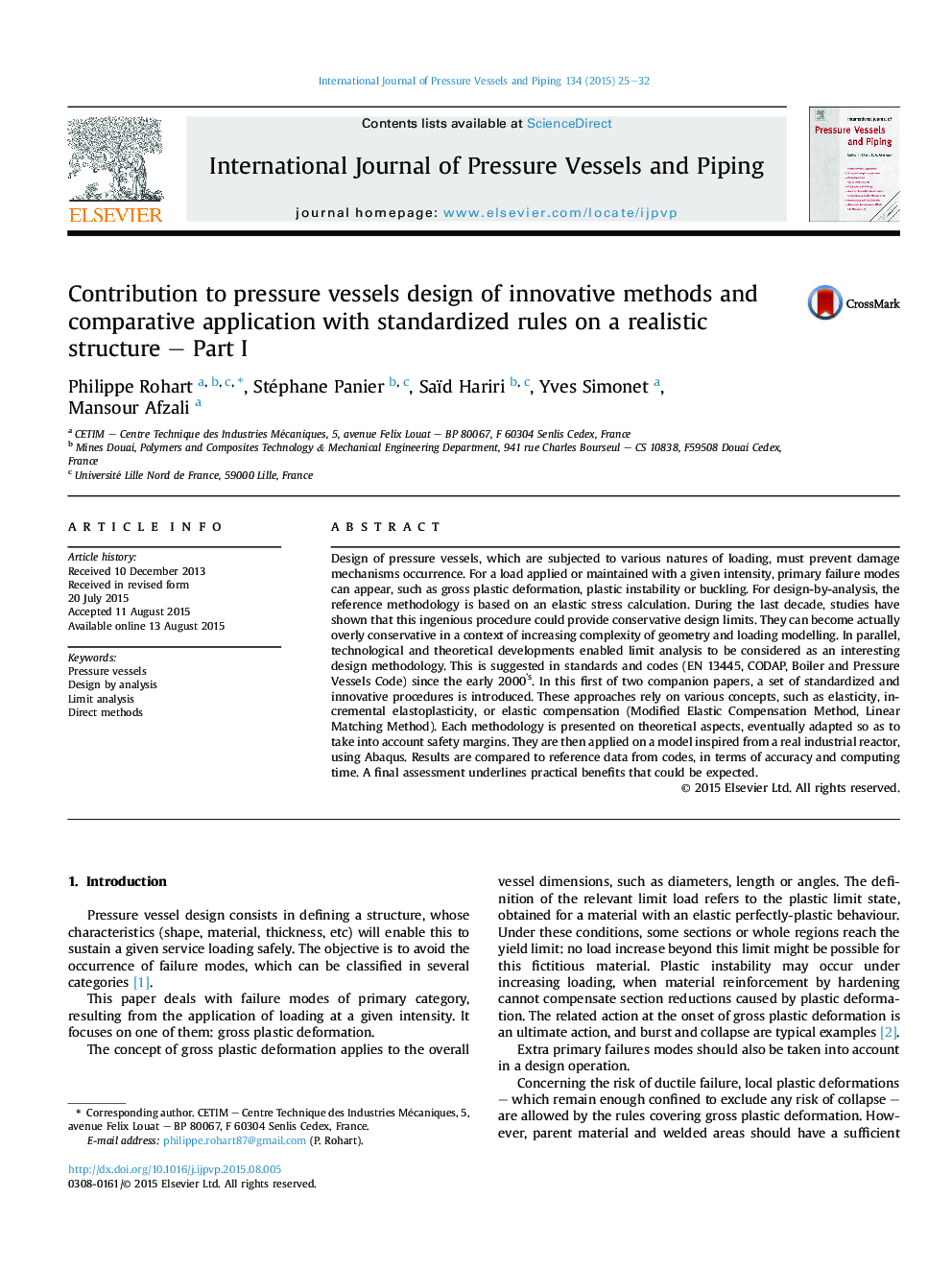| Article ID | Journal | Published Year | Pages | File Type |
|---|---|---|---|---|
| 790665 | International Journal of Pressure Vessels and Piping | 2015 | 8 Pages |
•A review of pressure vessels design methods against gross plastic deformation is made.•Innovative methodologies are introduced in order to overcome practical limits of classical methods.•Comparative tests are performed on one Benchmark with both classical and innovative procedures.•Results show the ability of innovative methodologies to improve the ratio ‘accuracy’ – ‘computationnal time’.
Design of pressure vessels, which are subjected to various natures of loading, must prevent damage mechanisms occurrence. For a load applied or maintained with a given intensity, primary failure modes can appear, such as gross plastic deformation, plastic instability or buckling. For design-by-analysis, the reference methodology is based on an elastic stress calculation. During the last decade, studies have shown that this ingenious procedure could provide conservative design limits. They can become actually overly conservative in a context of increasing complexity of geometry and loading modelling. In parallel, technological and theoretical developments enabled limit analysis to be considered as an interesting design methodology. This is suggested in standards and codes (EN 13445, CODAP, Boiler and Pressure Vessels Code) since the early 2000's. In this first of two companion papers, a set of standardized and innovative procedures is introduced. These approaches rely on various concepts, such as elasticity, incremental elastoplasticity, or elastic compensation (Modified Elastic Compensation Method, Linear Matching Method). Each methodology is presented on theoretical aspects, eventually adapted so as to take into account safety margins. They are then applied on a model inspired from a real industrial reactor, using Abaqus. Results are compared to reference data from codes, in terms of accuracy and computing time. A final assessment underlines practical benefits that could be expected.
